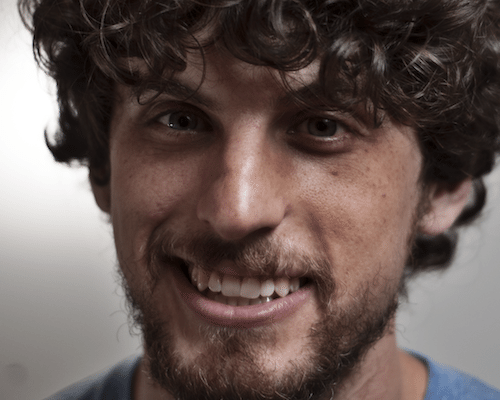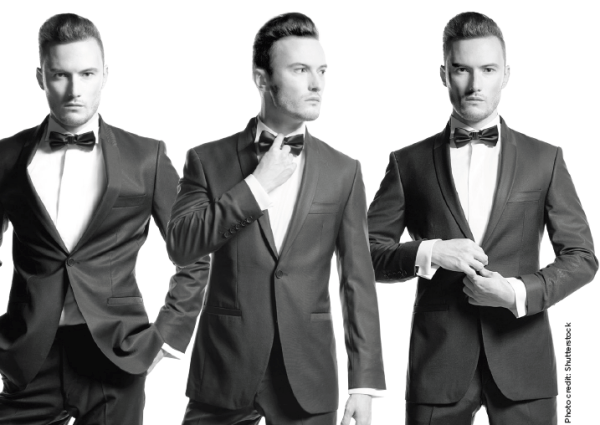
By Bradley Osburn
Amir Rubin, with his wild hair, wit and drive for world-changing invention, is what one might imagine a young Einstein would have been like.
Rubin doesn’t like to talk about himself; he’d rather his work speak for itself. But the 32-year-old University of Florida computer engineering graduate has spent the better part of a decade helping drive the budding innovation economy of downtown Gainesville.
The Boca Raton native has been the co-founder of Prioria Robotics; the first employee of Shadow Health, a medical teaching software company; an engineer for hire at Accelerated Perception consulting; and is now co-founder of the closely guarded Paracosm, which he wasn’t ready to reveal just yet.
He sat down with us to talk about his background, why computer programming is so important and what an innovator needs to succeed.
You seem to be a serial entrepreneur. Is that something you’ve always wanted to do?
I don’t think of myself that way. I like to work on big ideas and crazy projects. Starting a company, building a team and getting funding is usually the best way of achieving that goal.
I always just saw it as a means to an end. You just can’t do certain things by yourself.
How did you get started with computer engineering?
I was always obsessed with computers. I took a few programming classes and did it a little bit in high school. And when I came to UF, I started as a physics major. At a career fair I saw all of these companies hiring for computer engineers and I was like, “Holy crap, that’s what I’ve been wanting to do all along.”
What do you find so fascinating about programming?
Every engineer is probably going to tell you it’s all about the problem-solving. You become obsessed with solving problems. You can’t really focus on other people, or eating or sleeping. There’s just this puzzle in your brain that, until you solve it, you can’t think of anything else, and when you do it’s the best feeling in the world.
There’s no other profession where you can sit in a corner at your desk, wiring a circuit board or coding up an app, and that work that you’re doing will affect millions of people’s lives. You write the code once and it spreads. Someone wrote the code for a telecom system once and a hundred million people use it. You design a radiation detector one time and it’s used in every port around the world thousands of times a day. You’re shaping people’s world.
You came out of college in 2003 and co-founded Prioria. How did that start?
I was on a boat with my friend and it was like, “When we get off this boat, let’s start a robotics company.” And that’s basically it. I just knew I didn’t want a corporate job. So Bryan (da Frota), Jason (Grzywna) and I just kind of started a robotics company.
After you left in 2009, you were an engineer for hire at engineering consulting company Accelerated Perception. What was that like?
Consulting is rough, but it pays well. You learn a lot. My big project was weighing cows. We were taking the photo of a cow and trying to calculate the weight from the photo. It needed a little more time, but we got a little patent out of the deal, so that’s kind of fun.
A few months after that company ran out of money, David (Massias) from Shadow Health called me up and I hopped on.
Shadow Health is known for its virtual patient teaching software. What did you do there?
I coded the first version of their learning management system and more important, I think, was I helped recruit and hire a bunch of their engineers, and trained some of them too.
And now you’re busy with Paracosm. What’s your normal day like now?
A typical day is kind of chaotic. It’s a lot of talking to people. Like today: I get off a plane from Louisiana; prep an investor pitch deck for potential investors we’ll talk to next week; check out the latest demos and builds our team has done; try to figure out another customer deal; talk to our patent attorneys; review a license deal with UF; have this interview.
Since 2009 you’ve jumped, jumped, jumped. Is your drive to just do the next big thing?
In Gainesville that’s considered unusual, but if you look at six years at Prioria, a year and change at the cow project and almost two years at Shadow Health, that’s a long time in startup years. In San Francisco, average startup tenure is probably three to six months. For me, I need to work on what I’m most passionate about.
If I feel I’ve done everything I can do, and if I stop learning and growing, that’s when I know it’s time to move on. My chiropractor once told me that comfort is a killer. Never settle. You’ve always got to be in your danger zone.
Any advice for potential entrepreneurs?
Work with other startups and other businesses in town. Learn what’s up first. For someone looking to start a small business, go for it; the community needs you. If you want to start a tech startup, then hang out with the other startups in town and learn from them first.
Make amazing, beautiful, world-changing things, but do it for yourself, and do it because you’re good at it. And do it because people want and love and respect what you do, and do it because you’re passionate about it. Don’t do it for recognition or because it’s the cool thing to do.
What have you learned about starting your own business?
You know, everything is hard. I think it’s portrayed as very glamorous and trendy right now, but it’s a lot of grinding. You have to ask, “Is the world a better place because I’m doing this? And if I stop, will the world be worse off?” And if the answer is both, then that’s a good reason to start a business.
I think a lot of people do it because they think they’ll make a lot of money or they want to be cool. But you shouldn’t start a band to be a rock star; you start a band because you love music and you love entertaining people. It’s the same for starting a business. Do it because you love it.




